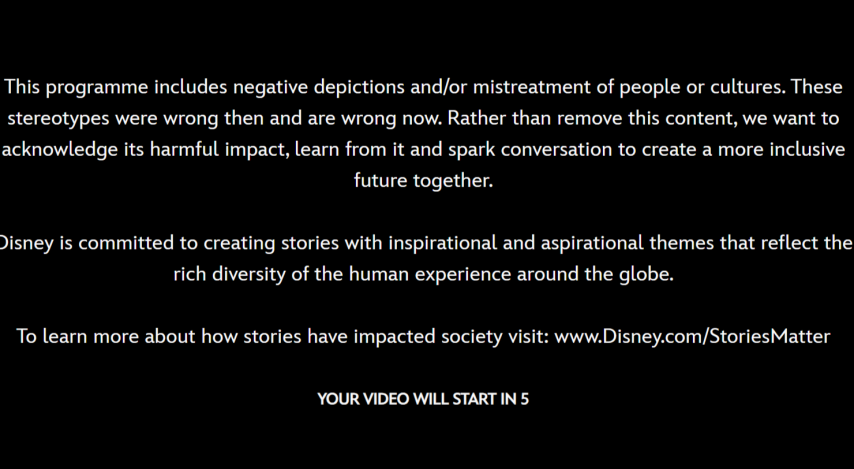Disney’s fall from the public’s good graces continues with the news that it’s seeking to have a lawsuit against it thrown out on the grounds that the plaintiff signed up for the Disney+ streaming service years earlier – the terms and conditions of which, Disney claims, contain an agreement to arbitrate all disputes with the company.
Grieving husband, Jeffrey Piccolo, is the man filing the $50,000 wrongful death suit, claiming that his wife, Kanokporn Tangsuan, died last October after suffering a fatal allergic reaction shortly after eating at the Raglan Road Irish Pub in Disney Springs, which is part of the Walt Disney World resort in Florida.
The May 31 motion in the Orange County court documents shows Disney argued that the Disney+ subscriber agreement Mr Piccolo signed in November 2019 on his PlayStation called for any dispute, with the exception of small claims, to be “resolved by individual binding arbitration”.
On top of this, Disney further argued that Mr Piccolo accepted a similar agreement when he used the ‘My Disney Experience’ app to buy tickets to visit the Epcot theme park in September, 2023 — a month before the trip his wife died on.
Mr Piccolo’s attorney, Brian Denney responded, as you might expect, describing Disney’s motion as “preposterous” and adding that the idea that signing up for a Disney+ free trial would bar a customer’s right to a trial “with any Disney affiliate or subsidiary, is so outrageously unreasonable and unfair as to shock the judicial conscience”.
Shocking it is. I’m sure that the many millions of people who’ve signed up to Disney+ since its inception would be surprised to know, say, that if they suffered an injury on one of Disney’s many rides, that they’d be precluded from going to jury trial, but would rather be forced into arbitration because of terms and conditions they’d unconsciously accepted in a seemingly completely different domain.
But then, this isn’t your granddaddy’s Disney, this is the megacorporation of 2024 that increasingly shows itself as being mainly concerned with grandstanding and money-grubbing, which is paradoxically, from Disney’s perspective, perhaps, losing them substantial amounts of it. Neither of these traits make it particularly well-adapted to providing children with the wholesome entertainment that their brand was associated with for so long.
Earlier this year, Disney CEO, Bob Iger was forced to reassure stakeholders and investors that the company would focus on entertainment over advancing “any kind of agenda,” after the company admitted at the end of 2023 that there existed a “misalignment” between Disney’s output and the public’s “tastes and preferences for entertainment”. Naturally, this admission came following substantial financial losses on recent projects.
Some examples of that misaligned output? A same-sex kiss in 2022’s children’s film, Lightyear, a non-binary character in last year’s family film, Elemental, and the “gayest Star Wars by a considerable margin” (Director Leslye Headland’s own words about the show she recently created, Star Wars: The Acolyte), which bombed with audiences and so will do little to reassure people that Bob Iger’s focus on entertainment is trickling down through the company. That last example came after Mr Iger’s refocusing of the company, too.
A number of Disney’s older films now begin with an unskippable block of text on their aforementioned streaming service, Disney+, warning viewers that what they’re about to watch “includes negative depictions and /or mistreatment of peoples or cultures”. However, rather than remove this dangerous content (which may deprive them of income), they want to “acknowledge its harmful impact, learn from it and spark conversation to create a more inclusive future together”.

Disney is slowly, painfully, learning the difficult lesson that conservatives still haven’t quite grasped, unfortunately, in so many of their artistic endeavours – that when you attempt to entertain people while primarily focusing on lecturing them, you generally do neither, because they get bored and switch it off. The more insidious element of Disney’s content, though, is that it’s a brand that still, especially in Ireland, enjoys a largely positive reputation, and so is a creator whose content parents are still happy to bring their children to see or to sit them down in front of at home.
Slips of the mask like Disney’s defence against Mr Piccolo’s lawsuit are doing damage Stateside, and I think it’s probably high-time that we in Ireland wiped the fairy dust out of our eyes to see clearly that Disney ain’t what it used to be.